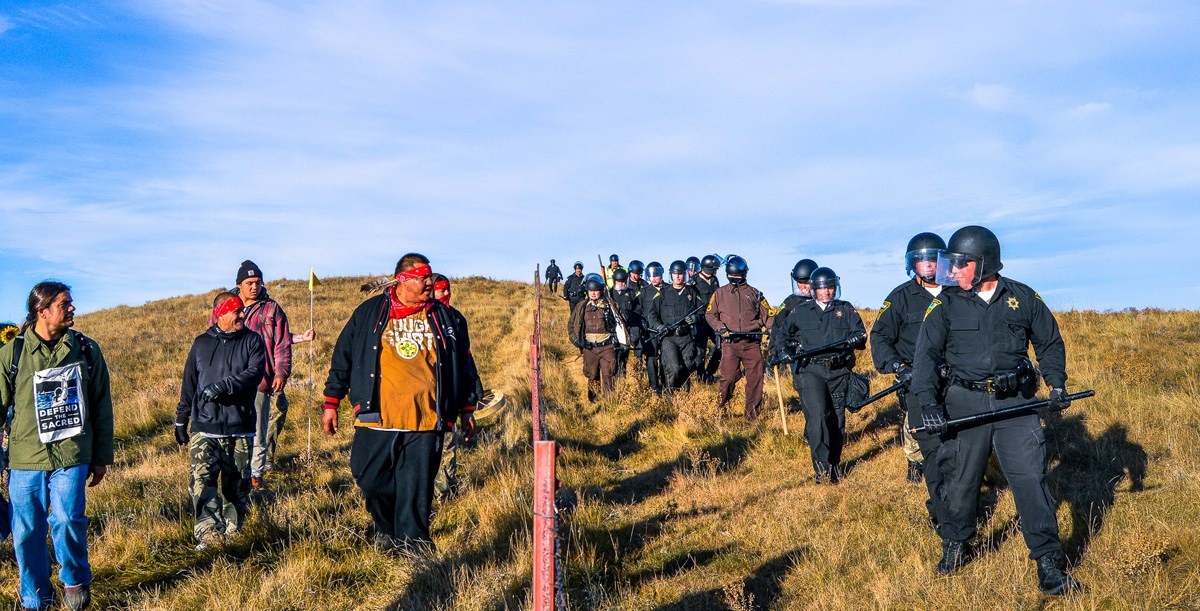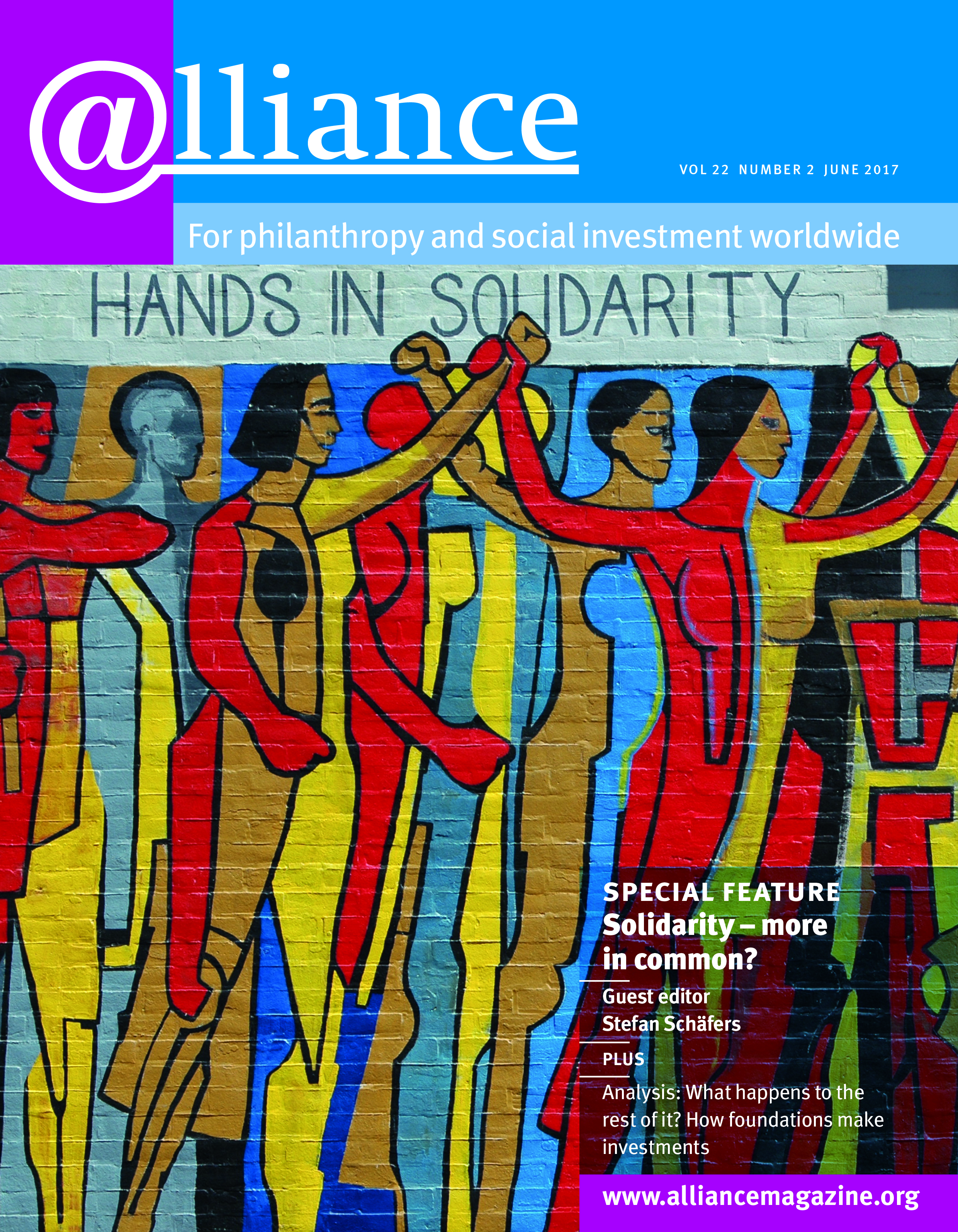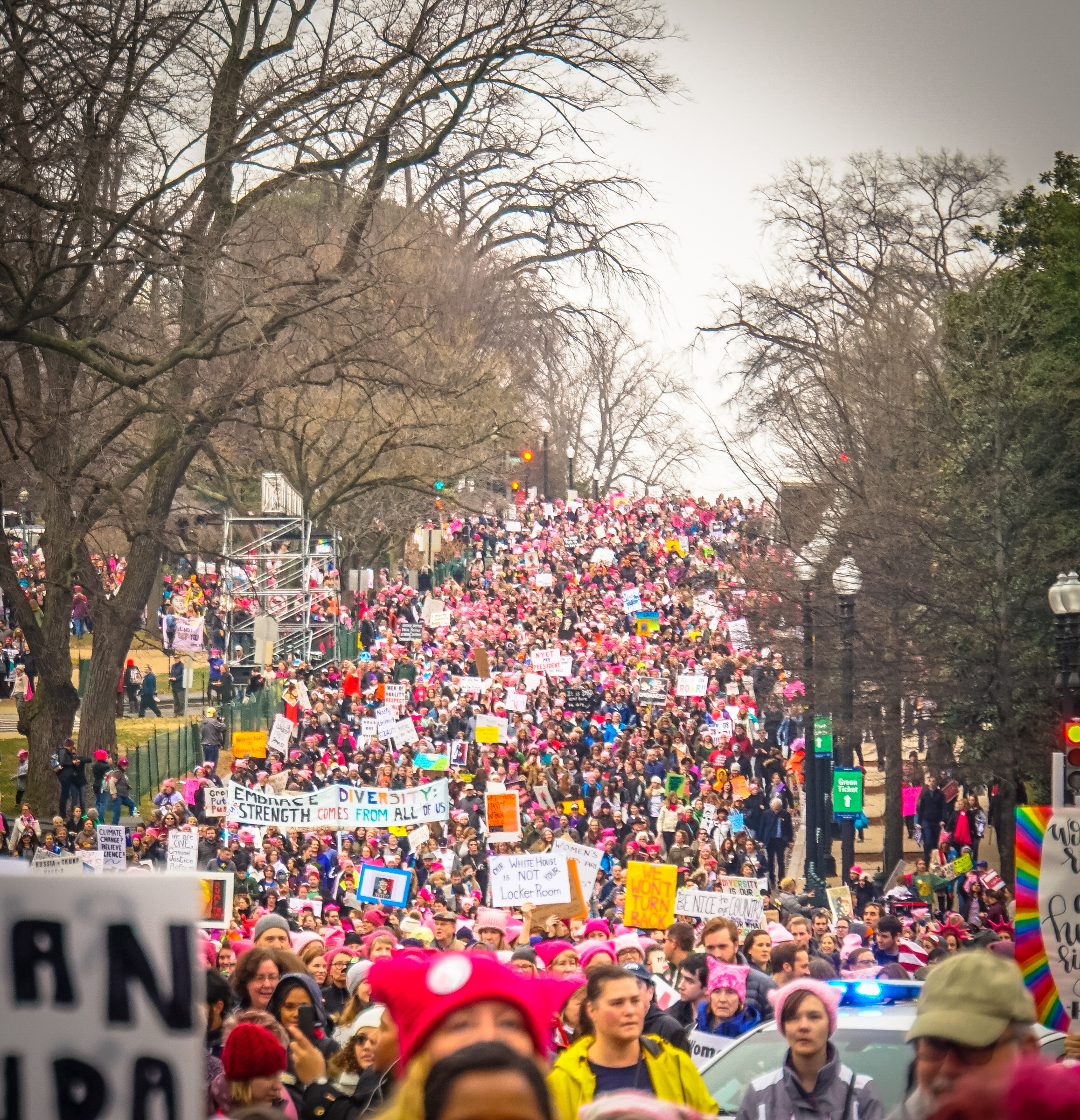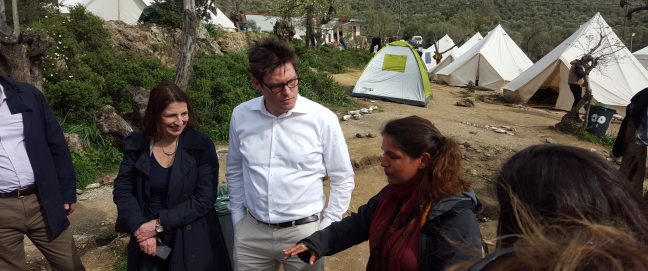The last year has seen a rising wave of threats to democracy, to our environment, and to marginalized communities around the world. Here in the US, an electoral shift has given rise to a threatening trend of attacks on the most marginalized – from deportation campaigns to increased state surveillance, Islamophobic migration bans to police violence.
However, in the face of these threats we are also witnessing some of the most powerful organizing and widespread mobilization in American history. The Women’s March mobilized more Americans on a single day for protest than ever before, new organizing groups and strategies are rapidly emerging, and long-time leading justice organizations are being revitalized with increased donations and volunteers to fight for justice.
Solidarity in philanthropy is a call to those with privilege to acknowledge the threats to those who are most marginalized in our society and to stand behind and with them as they fight for justice, to offer our resources and our voices in support of their leadership and mobilization.
When Solidaire launched three and a half years ago, our goal was to help advance the fight for justice by standing (and funding) in solidarity with a rising wave of social justice movements across the US and globally.

Protestors face off with riot police across a fence near a Dakota Access Pipeline construction site in North Dakota, 2016. Photo credit: Rob Wilson Photography.
We work together to address the systemic causes of injustice, coordinating our efforts and collaborating in our giving. We’ve grown from a handful of people to a network of 130+ donors and funders across the US moving resources to the critical organizing work of the day.
Funding in solidarity with social movements has taken many forms, within Solidiare and across the field of American philanthropy. As Ben Barge from the National Committee for Responsive Philanthropy has written: ‘Resistance is an ecosystem, and all of it needs support. Community organizing and direct action build power, making real change possible. Legal services change lives, offering access for the most vulnerable populations seeking relief.
In a moment of threat and for movements that operate in a constantly changing environment, philanthropy needs to act faster.
As government actions threaten more families and agency programmes get cut, these needs will grow.’ Three approaches in particular feel critical in this moment: rapid funding, long-term support, and using our voices and networks as truly allies to the movements we support.
In a moment of threat and for movements that operate in a constantly changing environment, philanthropy needs to act faster. Solidaire moves money to movements fast through the newly founded Emergent Fund and directly by our individual members, providing resources in a matter of hours or days to ensure that mobilizations can launch, bail funds can be paid, and immediate push back against new threats can be supported.
While needs still outpace new funds, it has also been inspiring to see other funders step up to move money rapidly from efforts in California like Common Counsel’s Still We Rise Fund and the San Francisco Foundation’s Rapid Response Fund for Movement Building, to the Chicago Foundation for Women’s 100 Day Fund, to efforts in New York such as the NY Community Trust and the NY Foundation’s Liberty Fund; the Brooklyn Community Foundation’s Immigrant Rights Fund; and the North Star Fund’s grants for Organizing Resilient Communities.
We also know that standing in solidarity with social movements means staying for the long term. Immediate resistance and mobilization is critical, but the fights for justice will take time and perseverance. Solidaire is piloting our long-term strategy with the Movement for Black Lives.
Over the next five years, we will partner with MBL to get black-led organizations building power in their communities the financial resources needed to address the deep structures of racism and discrimination that persist in American society.
I’m inspired by other funders who are making similar commitments, like the NoVo Foundation’s pledge of $20 million over four years to new grantees supporting ‘communities under attack’.
Finally, philanthropic solidarity calls on us to use our voices, our networks and our access to support social justice movement beyond the dollars we give.
From lobbying in the halls of Congress to physically showing up at protests, donors and philanthropy leaders need to use all of the resources at our disposal to advance the causes for justice we believe in. The moment is too urgent for half measures.
Jason Franklin is co-founder, Solidaire Donor Network. Email jasonefranklin@gmail.com
For more on solidarity, listen to our Alliance Audio podcast: Solidarity & Philanthropy.




Comments (0)